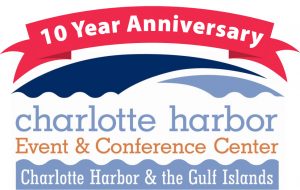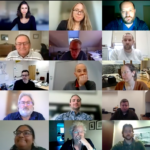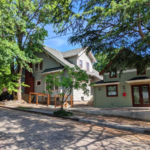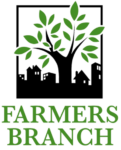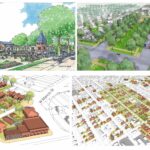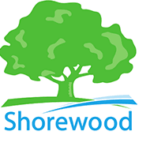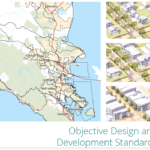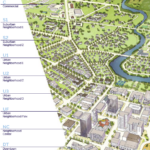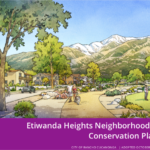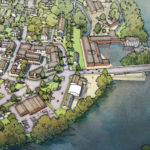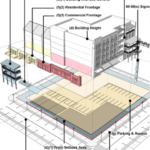FBC 201: Placemaking with Form-Based Codes – Punta Gorda, FL March 4-5
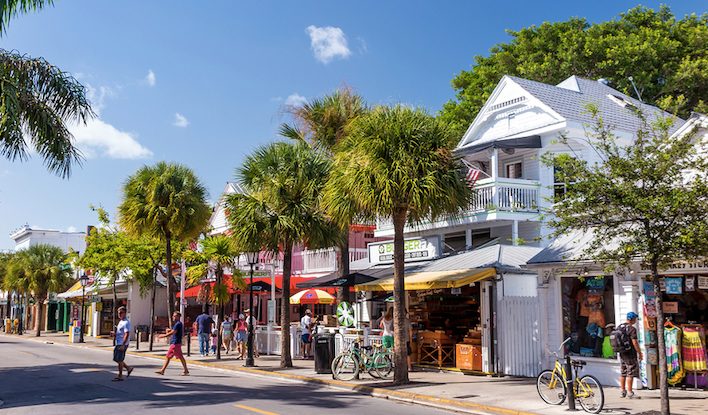
Image: www.floridaforboomers.com
Summary
FBC 201: Placemaking with Form-Based Codes
Monday, March 4th & Tuesday, March 5th, 2019
Charlotte Harbor Event & Conference Center
Myakka River Room
75 Taylor Street
Punta Gorda, FL 33950
Eligible for 16 AICP CM
This two-day course provides an in-depth understanding of how to guide good urban form through a regulatory framework. Participants learn to create form-based codes by drawing upon an area’s best urban elements to conceptualize the elements that shape public space and community character. Instructors delve into the basics of urban form, combining lecture and case studies with “hands-on” participatory exercises in the essential tasks of coding.
The course uses presentations and interactive discussions to enhance participants’ knowledge of urban design at the scale of the building and building types, the street and street types, the block and the neighborhood. Participants work together to apply theory and practice as they create a vision and regulatory elements of plan for an illustrative area. Instructors and panelists discuss unexpected design challenges, and explore design possibilities for greenfield sites, redevelopment areas, already built-out communities and regional plans.
Click the tabs above to see agenda and instructors.
Lodging
PG Waterfront Hotel & Suites
300 W Retta Esplande
Punta Gorda, FL 33950
Wyvern Hotel
101 E Rette Esplande
Punta Gorda, FL 33950
Springhill Suites
101 Harborside Avenue
Punta Gorda, FL 33950
Agenda
The following preliminary agenda is subject to change.
A final agenda will be ready one week before the start of the class.
8:00-8:30 AM Light Breakfast and Registration
8:30-9:00 AM Welcome / Course Highlights / Introductory Discussion
Topics covered: An introduction to FBCI and the course; participants’ objectives and desired takeaways; coding issues in your community.
9:00-10:00 AM Urban Form Basics: Streets & Other Urban Places
Topics covered: Street-Space, the core concept of form-based coding and the fundamental contrast with conventional zoning. Also, the network, context, and types of streets; the elements of street cross-sections; overcoming barriers to complete streets; and resources for creating great streets.
10:00-10:15 AM Break
10:15-11:00 AM Urban Form Basics: Private Building Principles & Types
Topics covered: The role of buildings to form the public realm and frame and protect the private realm; the palette of building types that make up a city and how they work.
11:00 AM-11:45 AM Urban Form Basics: The Urban Block
Topics covered: The structure of the urban block and how it organizes public space vs. private space, (buildings, streets, rear service). How urban blocks define the physical structure of the places we inhabit
11:45-12:45 PM Lunch on Your Own / Informal Discussion with
Instructors
12:45-1:30 PM Small-Scale Urban Design Examples: Streets, Blocks, & Building Scale
Topics covered: Built examples of projects at the scale of street, block, building.
1:30-2:15 PM Urban Form Basics: The Urban Neighborhood
Topics covered: The role of neighborhoods in healthy communities; the neighborhood as the basic building block of towns and cities; and the mix of uses and hierarchy, function and location of appropriate streets.
2:15-3:00 PM Large-Scale Urban Design Examples
Topics covered: Examples of larger scale projects and how the design principles in form-based codes are applied to real projects. Q&A.
3:00-3:15 PM Break
3:15-5:15 PM Exercise: Part One – Creating a Vision Plan
Topics covered: This two-part exercise explores the fundamental process of form-based coding—that of creating regulations based on a community vision. Instructors will work with class participants to translate a community vision into form-based regulations. Class participants will learn how to extract the necessary information from a vision plan, deciding what to regulate in order to implement the community vision.
In this first part of the exercise, participants will create a Vision Plan for a set of urban blocks. The resulting plan will be the basis for Exercise Two, which will create a regulatory framework to implement the vision.
5:15 PM End of Day One
DAY TWO
8:00-8:30 AM Light Breakfast
8:30-9:00 AM Instructor led Discussion on Exercise Part One
Topics covered: Participants will share their notes and insights from the exercise.
9:00-10:00 AM FBCs : Creativity and Constraints
Topics covered: What a code constrains and what it doesn’t; creativity in the “street wall;” FBCs and design guidelines; architectural creativity under a form-based code. Mistakes made, lessons learned.
10:00-10:15 AM Break
10:15 AM – 12:15 PM Exercise: Part Two – Selecting and Writing Regulations
Topics covered: In this second part of the exercise participants explore the fundamental process of form-based coding—creating regulations, which are based on a community vision. Participants will extract the necessary information from the vision plan created in Part One, deciding what and to what degree, to regulate.
12:15-1:30 PM Lunch on Your Own / Informal Discussion with Instructors
1:30-2:15 PM Instructor Comments on Exercise Part Two
2:15-3:15 PM Florida Perspective on Form-Based Coding and Complete Streets – An Interview with Billy Hattaway, Transportation Director, City of Orlando, FL Moderator: Joe Kohl
Topics covered: Form-based codes have gained positive momentum in Florida as a legitimate alternative to Euclidian zoning. Regional examples of form-based codes and their integration with Complete Streets policies will be shared and discussed.
3:15-3:30 PM Break
3:30-4:15 PM Roundtable Discussion
Topics covered: Broad theme of sustainability. How form-based codes are used to promote walkable, mixed-use urbanism. Energy policy, resiliency and return on investment for local governments. Local questions and concerns. “Parking Lot” issues identified throughout the class. Looking ahead to FBC 301.
4:15 PM End of Course
Instructors
FBCI draws upon national experts, including urban designers and planners with broad experience in all aspects of form-based coding.

Victor Dover, FAICP is principal in the town planning firm of Dover, Kohl & Partners. His practice focuses on the creation and regeneration of sound neighborhoods as the fundamental component of livable communities. Victor holds degrees from Virginia Tech and the University of Miami, and is credentialed by the American Institute of Certified Planners. He was a charter member of the Congress for the New Urbanism, and currently serves as CNU’s national chair. He is the author of the “Streets” chapter in the Charter for the New Urbanism book, a board member of the National Recreation and Parks Association, and co-author of Street Design: The Secret to Great Cities and Towns. He served on the core committee that established the new LEED for Neighborhood Developments (LEED-ND) standards. Victor is a Fellow of the American Institute of Certified Planners. He’s also a veteran marathoner and Ironman triathlete.

Geoffrey Ferrell is one of the originators of the modern practice of Form-Based Codes. His work ranges from site-specific urban designs to zoning-toolkits to replace Euclidean zones – development regulations that emphasize clarity for end-users. His experience with adopted municipal form-based codes goes back to 1991 with the Metropolitan Dade County Traditional Neighborhood Ordinance, and his experience includes the master plan & form-based code for the redevelopment of the Columbia Pike Corridor in Arlington, Virginia. His firm’s Form-Based Codes for the Farmers Branch, Texas, Station Area and Heart of Peoria Form-Districts in Peoria, Illinois, received the Richard Driehaus Form-Based Code Award in 2007 and 2010, respectively. Ferrell Madden’s work is featured in the books Form-Based Codes, The New Urbanism, and Retrofitting Suburbia.
Mr. Ferrell holds a Master of Architecture degree with a Certificate in American Urbanism from the University of Virginia, a Bachelor of Architecture from Oregon School of Design, and a Bachelor of Science in Public Policy from Willamette University. He is a Charter Member of the Congress for the New Urbanism and a Charter Board Member for the Form-Based Codes Institute.

To see all FBCI instructors, please visit our website, www.formbasedcodes.org
Registration Fees
Public Sector: $525
Private Sector: $575
We accept Visa, MasterCard, and Discover.
Registration is now full for this course
Thanks to our sponsors!


